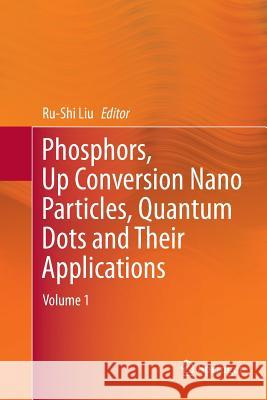Phosphors, Up Conversion Nano Particles, Quantum Dots and Their Applications: Volume 1 » książka
topmenu
Phosphors, Up Conversion Nano Particles, Quantum Dots and Their Applications: Volume 1
ISBN-13: 9783662570807 / Angielski / Miękka / 2018 / 593 str.
Kategorie BISAC:
Wydawca:
Springer
Język:
Angielski
ISBN-13:
9783662570807
Rok wydania:
2018
Wydanie:
Softcover Repri
Ilość stron:
593
Waga:
0.83 kg
Wymiary:
23.39 x 15.6 x 3.1
Oprawa:
Miękka
Wolumenów:
01
Dodatkowe informacje:
Wydanie ilustrowane











